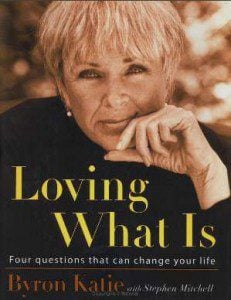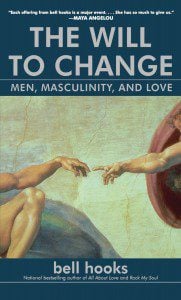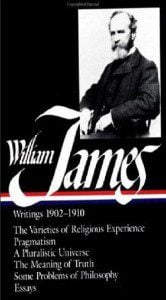Note: This post is the fifth in a six-part series on the ancient Christian document called the Didache (50-70 C.E., pronounced “DID-ah-KAY). Links to previous entries in this series are at the bottom of this post.
11:1 Welcome the teacher when he comes to instruct you in all that has been said…. 11:2 If he teaches so
as to increase righteousness and the knowledge of the Lord, receive him as the Lord. 11:5 But he must not remain more than one day, or two, if there’s a need. If he stays three days, he is a false prophet. 11:6 And when the apostle goes away, let him take nothing but bread to last him until his next night of lodging. If he asks for money, he is a false prophet. 11:8 But not everyone who speaks in the Spirit is a prophet; only he is a prophet who has the ways of the Lord about him. By their ways will the false prophet and the prophet be known. 11:9 Any prophet who orders a meal in the Spirit does not eat it; if he does, he is indeed a false prophet.11:10 And any prophet who teaches the truth, but does not do what he teaches, is a false prophet. 11:11 When a prophet, proved true, works for the mystery of the church in the world but does not teach others to do what he himself does, he will not be judged among you, for his judgment is already before God. The ancient prophets acted in this way, also. 11:12 But whoever says in the Spirit, “Give me money,”or something else like this, you must not listen to him. But if he tells you to give for the sake of others who are in need, let no one judge him. 12:3 If he wants to stay with you, and is a craftsman, let him work for his living.12:4 But if he has no trade, use your judgment in providing for him; for a Christian should not live idle in your midst. 12:5 If he is dissatisfied with this sort of an arrangement, he is a Christ peddler. Watch that you keep away from such people.
Didache 11-13
What do you think of when you hear the word “prophet?”
If you were raised on Greek mythology perhaps the “Oracle of Delphi” comes to mind. The Greek god Apollo was said to speak through her when she fell into a trancelike state.
From a biblical perspective, perhaps names such as Isaiah, Jeremiah, and Ezekiel — or Amos, Hosea, and Micah — are more familiar.
In more recent times, we often call people like Martin Luther King, Jr., Mahatma Gandhi, and Dorothy Day prophets because they speak out for social justice.
Given the religious affiliation of one of our country’s potential presidential nominees, we should perhaps also mention that not only did Joseph Smith call himself a prophet resulting in his ‘translation’ of the text known as the “Book of Mormon,” but each President of the Church of Jesus Christ of Latter Day Saints continues to claim authority to speak God’s continuing prophecies as they are revealed. And that claim is perhaps at the heart of what it means to be a prophet: to claim to speak for (or on behalf of) God, a powerful and audacious assertion to say the least. And the issue before us this morning is how, when someone claims to be a prophet, we can discern if that person is speaking truthfully or not. Said differently, if “God is still speaking,” as the United Church of Christ’s recent ad campaign invited us to consider, then how can you determine is someone is authentically speaking for God?
The criteria for distinguishing true prophets from false prophets is perhaps a practice that Christians need to speak about more frequently because the consequences of following charismatic false prophets are often so severe. The frontline of false prophets today are probably the hucksters on TV trying to con lonely folks out of their paychecks and the charlatans offering false hopes of healing that they themselves know is no more than snake oil.
Last year the world saw surprising numbers of people sell everything to spread the false doomsday propaganda of the late Harold Camp. And in recent decades we have also witnessed the tragic victims of cults such as the Branch Davidians, the mass suicide of the Heaven’s Gate “Halley Bop” comet nonsense, and Jim Jones’ People’s Temple from which the phrase “drinking the Kool-Aid” originated.
But most of us, I suspect, are not too worried about being led astray by a false prophet on quite that scale. Perhaps a more nuanced question is whether someone could, from a certain perspective, be speaking an “authentic” prophetic word from God, while others nevertheless find that word from God unhelpful to them at their current stage of faith development. For example, in a “Biblical Prophets” class that I took in college, I remember the professor asking me if I would consider Billy Graham a prophet. I found myself somewhat surprisingly saying, “Yes and no.” Growing up in a Southern Baptist Church in the 80s and 90s, Billy Graham was virtually a living saint. There is indeed much to admire about him, but by the late 90s I found myself coming to a more complex perception of Billy Graham’s evangelistic crusades. On one hand, I think that he genuinely believes he is called to speak on behalf of God, that he speaks for God as truthfully as he know how, and that his words have had a transformative impact on immense crowds of people. On the other hand, I’m increasingly unsure about the way he and other evangelical preachers emphasize the importance of ‘being saved’ through making one single decision, saying a particular prayer, and focusing on the next world often at the expense of a focus of the needs of this world. This discrepancy led me to question how much Graham fully speaks on behalf of the God in the way that I am coming to understand God. After hearing my reply, my college professor said with a wry grin, “You really have gone off into the deep end of the pool haven’t you?” What he meant, I think, is that I was beginning to swim in theological water deep enough such that you couldn’t see the bottom or even the full extent of the body of water in which you are immersed.
I believe we are called to swim in deep waters if we are to mature into a Christian faith worthy of adulthood. But the result can be that those voices who spoke powerfully — even prophetically — to us of God while we were in the shallow end of the pool no longer speak as powerfully to us. This claim is merely to saw that we have “ears to hear” different prophetic voices at different stages of our lifelong faith journey.
~~~~~~~~
Those early followers of Jesus that were part of the Didache community found themselves in a similar situation as they tried to discern whether the strangers who showed up at their door were true or false prophets of God. As we explore the criteria they developed for discernment, one question you can ask yourself is whether it is better to err on the side of caution and banish anyone who may be a false prophets. In so doing, you help protect yourself from being naively led astray. However, you simultaneously risk missing a word from someone, who may be authentically speaking for God, but regarding whom you do not have “eyes to see and ears to hear” that she or he is a true prophet.
I invite you to remember that the Didache represents “Plan B” for following Jesus. The Didache, in many ways, represents a manual for adapting the way of Jesus to the duties and concerns “of family, of occupation, of home — the very things that Jesus and his wandering apostles had left behind.” Remember Jesus’ commission to the apostles in Mark chapter 6 in which he sends them out in pairs:
8 He ordered them to take nothing for their journey except a staff; no bread, no bag, no money in their belts; 9 but to wear sandals and not to put on two tunics. 10 He said to them, “Wherever you enter a house, stay there until you leave the place. 11 If any place will not welcome you and they refuse to hear you, as you leave, shake off the dust that is on your feet as a testimony against them.”
The Didache reflects both the other side of the coin and the fruit of this commission. Jesus sent these itinerant peasant out to proclaim the good news of God’s grace to householders, to those who would open the doors of their homes to Jesus’ followers and either offer them hospitality or not. The Didache is written by and for those householders, who came to know about the kingdom of God through those wandering pairs of apostles.
A few decades after the life of the historical Jesus, the Didache attests that charismatic followers of Jesus’ way are continuing to circulate and are continuing to claim to speak prophetically for God. Notice in our reading for this morning that the Didache is clear on the need to practice hospitality: “Welcome the teacher when he comes to instruct you in all that has been said” (11:1). But litmus tests for distinguishing true prophets from false prophets quickly follow.
True prophets “teach so as to increase righteousness and the knowledge of the Lord” (11:2) and “have the ways of the Lord about him” (11:8). Many of you will recall that the Didache is famously pragmatic, most palpably in chapter six, verse 2: “For if you are able to bear the entire yoke of the Lord, you will be perfect; but if you are not able, then at least do what you can.” And here in chapter 11, we see a similar pragmatism regarding prophets: basically, “by their fruit you will know them” (Didache 11:8; Matthew 7:16)
Compared to the description of true prophets, there is a much longer list of ways of identifying false prophets. One of my favorites is “If he stays three days, he is a false prophet.” In other words, the Didache community seemed to be familiar with Jesus’ commission for his followers to travel itinerantly without food, bag, or money. If someone stayed in one place too long, they were contradicting the itinerancy part of the commission, although I will admit that a mere two days seems excessively stringent to me. At the same time, I do not have would-be prophets ringing my doorbell every 2-3 days, whereas perhaps some early house churches did have would-be prophets almost constantly knocking on their door.
Also in line with Jesus’ commission not to carry food or money, the Didache cautions, “when the apostle goes away, let him take nothing but bread to last him until his next night of lodging,” and “If he asks for money, he is a false prophet” (11:6). False prophets can also be exposed if they do not practice what they preach (11:10).
Returning to the Didache’s pragmatism, there is a recommended procedure for prophets who want to stay longer than two days: “If he wants to stay with you, and is a [artisan], let him work for his living. But if he has no trade, use your judgment in providing for him; for a Christian should not live idle in your midst” (12:3-4). And I love that the text warns further that, “If he is dissatisfied with this sort of an arrangement, he is a Christ-peddler. Watch that you keep away from such people” (12:5). Perhaps we need to bring the term “Christ-peddler” back into circulation for those who claim to be God’s prophets, but are truly interested only in their own profit.
As this sermon draws to a close, I would like to share with you one other early Christian model for distinguishing prophets from charlatans. We have discussed previously that the Didache was likely not canonized into the New Testament because it was known too regionally. Another relatively popular early Christian document that could’ve made it into the New Testament is called the Shepherd of Hermas (90-135 CE). Chapter 11 of this book shows an early Christians similarly wrestling with an onslaught of traveling prophets. The Shepherd of Hermas says that a prophet “has the Spirit” if she or he is “meek, peaceable, humble, refrains from all iniquity and the vain desire of this world, and contents himself with fewer wants than others.” In contrast, a false prophet, who merely “seems to have the Spirit, exalts self, wishes to have the first seat, bold and imprudent and talkative, lives in the midst of many luxuries and many other delusions, and takes rewards for prophecy. Similar standards would be whether the person displays the “fruit of the Spirit”: “love, joy, peace, patience, kindness, goodness, faithfulness, gentleness, and self-control” as described in Paul’s letter to the Galatians (5:22-23), and whether their life and teaching result in an increase in the love of God and neighbor, which were Jesus’ two Greatest Commandments.
As we enter into a time of contemplative silence, I invite you to reflect on, how do (or don’t) you experience God as “still speaking?”
And how have you discerned in your experience between true and false prophets?
For Further Study on the Didache
- Aaron Milavec’s The Didache: Text, Translation, Analysis, and Commentary is an accessible, condensed version of his massive tome The Didache: Faith, Hope, and Life of the Earliest Christian Communities, 50-70 C.E.
- Tony Jones’ The Teaching of the Twelve: Believing & Practicing the Primitive Christianity of the Ancient Didache Community is another accessible entry point. And there is a supplemental DVD.
- Thomas O’Loughlin, The Didache: A Window on the Earliest Christians.
- Read the text of the Didache for yourself free online at http://www.paracletepress.com/didache.html.
Previous Sermons in this Series
- Preaching the Didache: What Is Your Canon and Why? (Didache 1).
- The Pragmatism of the Didache: At Least Do What You Can (Didache 2-6).
- Is Baptism Overrated? (Didache 7)
- Eucharist Like You’ve Never Heard It Before (Didache 9-10)
For Further Study
- Nadia Bolz-Weber, Salvation on the Small Screen? 24 Hours of Christian Television: “On an average day, the largest religious broadcast channel in the country reaches millions of viewers, featuring programming from figures such as Benny Hinn, T.D. Jakes, Pat Robertson, Paul and Jan Crouch, Jesse Duplantis, Joel Osteen, and others. Yet, despite its presence in well over 50 million households, many people have little concept of what kind of faith happens there. The concept is as clever as it is brave: Spend 24 hours watching `Christian television’ programming, and bring friends. Talk about what you see. Let hilarity and poignancy ensue. Lutheran minister Nadia Bolz-Weber gives us a wincing and winsome look through those cable channels that many ignore and many others make their spiritual bread and butter.”
- Abraham Joshua Heschel, The Prophets: “When first published in 1962, it was immediately recognized as a masterpiece of biblical scholarship. According to the popular definition, a prophet is one who accurately predicts the future. But in the Jewish tradition, these figures earn their title by witnessing the world around them with outstanding passion. Prophets are those whose ‘life and soul are at stake’ in what they say about ‘the mystery of [God’s] relation to humanity.’ They are ‘some of the most disturbing people who have ever lived.’ Heschel’s book, one of the classic texts on the subject, contains sophisticated, straightforward discussions of each of the Hebrew prophets, the primary themes of their preaching, and comparisons of Israel’s prophets to those of other religions’. Throughout, Heschel avoids the two great temptations in any discussion of prophesy: overstating the supernatural quality of a prophet’s epiphany (‘A prophet is a person, not a microphone’), and reducing prophesy to a merely human phenomenon. Instead, Heschel describes the prophet’s peculiar status as God’s spokesman in a way that does justice to its complexity: ‘He speaks from the perspective of God as perceived from the perspective of his own situation.’”
- Snopes.com: Urban Legends Reference Pages. Arguably one of the most ubiquitous and pernicious sources of ‘false prophecy’ in our Internet Age are false or half-true e-mail forwards. This website is “the definitive Internet reference source for urban legends, folklore, myths, rumors, and misinformation.” Visit this site to check the facts on email forwards you receive.
Notes
1 snake oil — For a constructive alternative, see my post, “A Progressive Christian Explores Healing Prayer.”
2 For more on stages of faith development, see “Becoming a Conjunctive Church.”
3 The title Didache literally means “The Teaching.” This ancient book is dated to about the same time that Paul is writing his letters or a little afterward: the 50s of the first century, about twenty years after the life of the historical Jesus. It was thought lost, only to be surprisingly rediscovered in a church library in Turkey in 1873. For more on the history of the Didache’s modern rediscovery, see Tony Jones, The Teaching of the Twelve: Believing & Practicing the Primitive Christianity of the Ancient Didache Community, 4-5.
The Didache does not have any seeming knowledge of Paul’s letters or of the Gospels. For more, see Aaron Milavec, The Didache: Faith, Hope, and Life of the Earliest Christian Communities, 50-70 C.E., 789.
As late as the fourth-century, some prominent early Christian writers, such as Eusebius (c. 263–339 C.E.) and Athanasius (c. 296-373 C.E.), “even considered it to be on the fringe of the New Testament canon,” but it ultimately proved to be known and used in too small a region to make the final cut for the most universally recognized collection that we know today as the New Testament. For more, see Bruce Metzger in The Canon of the New Testament: Its Origin, Development, and Significance (49).
The original focus of the Didache was likely as a training manual for Gentile converts to Jesus’ way. A Gentile-focused book such as the Didache was necessary because both Jesus and his earliest followers were, for the most part, Jews. For more, see Milavec, The Didache: Faith, Hope, and Life of the Earliest Christian Communities, 50-70 C.E., vii.
4 “adapt the way of Jesus to the exigencies of family, of occupation, of home — the very things that Jesus and his wandering apostles had left behind.” — Aaron Milavec, The Didache: Text, Translation, Analysis, and Commentary, x.
The Rev. Carl Gregg is a trained spiritual director, a D.Min. candidate at San Francisco Theological Seminary, and the pastor of Broadview Church in Chesapeake Beach, Maryland. Follow him on Facebook (facebook.com/carlgregg) and Twitter (@carlgregg).












